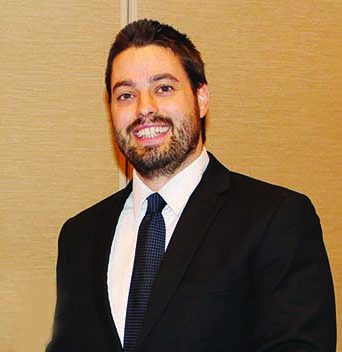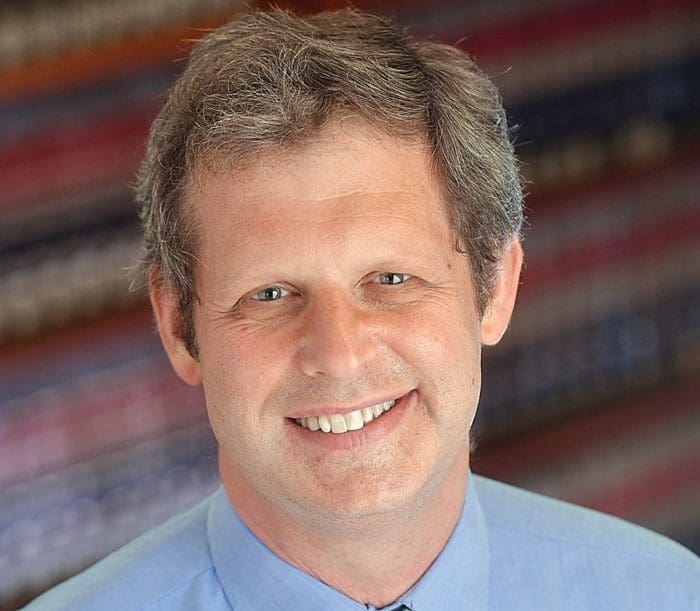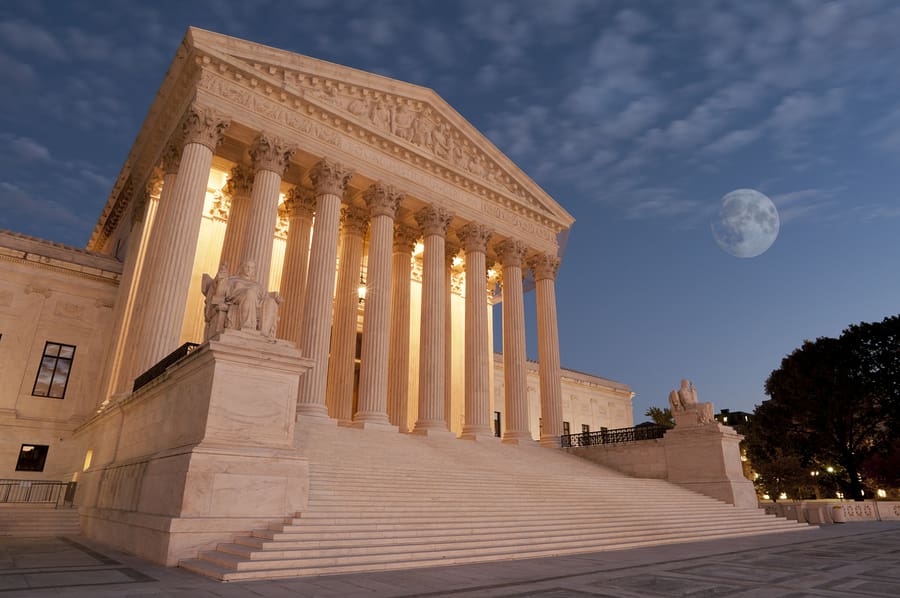As promised, TTAG assembled a who’s who of Second Amendment legal minds to give their highly educated opinions and analysis of this morning’s arguments in the New York Second Amendment case before the Supreme Court. See below for brief descriptions of the participants.
The discussion lasted about 40 minutes and was ably lead by our own LKB. Here’s video . . .

Joseph Greenlee, Firearms Policy Coalition senior attorney and Director of Constitutional Studies.

Dave Kopel, Research Director of the Independence Institute, Associate Policy Analyst at the Cato Institute, and adjunct Professor of Advanced Constitutional Law at the University of Denver’s Sturm College of Law. Follow him at davekopel.org.

Eugene Volokh, Gary T. Schwartz Distinguished Professor of Law at UCLA and proprietor of the popular Volohk Conspiracy blog at Reason.com.

Cody Wisniewski, Director of the Mountain States Legal Foundation’s Center to Keep and Bear Arms.





We’re fucked, with zero lube…
Serious question: If you had to choose between being Geoff or being the spooge mop at the peep show down by the airport, which brand of mop would you choose to be?
That’s your job. little boy.
A *very* little boy, if you know what I mean… 😉 😉 🙂
Summary anyone? I don’t have 40 minutes to listen to this until tonight. Just a vote: is the case a winner or a loser? Or, what do they think is the likely result? I know Roberts is inscrutable, having asked no questions…
summary of whole video: the lawyers liked certain parts more than others, talking points on various aspects, speculation speculation speculation … and oh yeah, before I forget, speculation.
Its one of those things you watch with questions, but afterwards you think “so whats the answer?”
It explains some things from the arguments though.
Consensus forecast is a 6-3 win for the 2A side.
Everyone was pleasantly surprised that Kavanaugh was MUCH stronger pro-2A than anyone expected, and Roberts & ACB seemed to be telegraphing support for the public carry right (although they likely will leave some room for governments to designate locales as “sensitive places” where carry can be restricted, so long as that exception isn’t used as a sham to swallow the right).
While not discussed in the panel discussion, what I thought was a VERY telling question was ACB asking the NY counsel whether or not Heller was correctly decided and was binding. That was a very loaded question, and may indicate her thinking that many of the arguments raised by NY and the SG’s office were disposed of by Heller.
While Roberts might be inclined to wimp out, if there are 5 votes to reverse (Pro-2A block + Kavanaugh + ACB) then the expectation is that Roberts will vote with the majority so that he can assign the opinion to ACB (if he doesn’t, Thomas has the pen, and would likely assign it to himself — which Roberts won’t want to allow).
Imagine where we’d be if Trump handn’t helped us with the right nominations SCOTUS picks and appointmnts?
The case would never have appeared before a hostile court.
That was the most interesting takeaway and a valuable insight, that Roberts who was “gifted” Chief Chair (which trumps seniority), would vote for the passage in order to essentially “water it down”.
If this is the case, what a Dread Pirate (that) Roberts has become.
Berger used to pull the same sh!t all the time. In fact, he would switch his vote to join the majority just to be able to control the opinion.
I like a scenario where Thomas writes a majority if we should be fortunate enough for it to happen, I hope Roberts wimps if that’s the case.
“Summary anyone?”
Belief seems to be that a right will be recognized, probably not enough to make us happy.
So, I won’t be talking my LCR on a stroll through Times Square.
One case I’d like to see pushed is 50-state reciprocy of some sort…
Agreed!
“One case I’d like to see pushed is 50-state reciprocy of some sort…”
We already have nationwide “reciprocity” via the prohibition in the Second Amendment that government “shall not infringe”. Mere legislation will remain mere legislation – majority rules – that can change with the wind.
What we don’t have are the seven high priests with the backbone to stomp clearly and decisively that “shall not infringe” is plain language that even 230 years later is language understandable today.
This^
Geoff, I’d love to see nationwide reciprocity. But it is not going to happen. The Federal Government can’t impose on what is essentially a state function, ie: the issuance of pistol licenses. See the 10th Amendment.
Walter E Beverly III,
You touched upon the core problem with licensing a Constitutionally enumerated right.
Keep in mind that nationwide reciprocity must happen from a righteous standpoint: otherwise states like New York can prohibit non-residents from exercising any Constitutionally enumerated right such as free speech–which is completely unthinkable.
We have to smack-down the notion that states can prohibit exercise of fundamental (especially Constitutionally enumerated) rights when 51% of the voters in such states support infringements on those rights.
uncommon sense, I see what you are driving at, but the Court has already addressed this issue with the Heller and McDonald decisions. It’s already the law of the land.
Congress has already done so. Twice. First with the Armored Car Industry Reciprocity Act and again with LEOSA.
The first is clearly empowered by the Commerce Clause. The second is curious. It is infringing upon the police power of states to regulate conduct that occurs within its borders. How can Congress tell a second state that it can’t enforce its laws on someone crossing into its territory if that person happens to be a police official from another state? Let alone a retired police officer? This doesn’t seem to be commerce. Perhaps it’s militia power; that could apply to retired police officers but not active duty officers.
I think my opinion on interstate reciprocity has shifted after McDonald and Bruen. Now that there is a national right-to-carry under these decisions, I think Congress has Constitutional power to regulate interstate carry.
The very first step would be to make regular non-resident permits. No state should be able to discriminate against non-resident applicants for carry permits. Some states forbid non-residents to carry (NY) or impose onerous restrictions (SC). Why did I have to buy a 20′ X 40′ plot of land in SC to become eligible for a SC “Qualified Non-Resident Permit”?
A second measure I would like to see is a Federal law requiring each state to grant reciprocity to at least N states’ carry permits. If the requirement were for 1 state that would help. If it were 4 states, that would just about solve the inter-state carry permit problem.
Suppose NY had to grant reciprocity to 4 states. And NJ, and MD, and MA as well. Likely, these would form a block of about 5 or 6 states with the most stringent standards for permits. Anyone permitted in any of these states could carry in the other states. And all the remaining 45 or so states would honor these states’ permits. It would be a “Gold Card”.
Then another block of a dozen states would agree to honor one another’s permits, creating a “Silver Card”. Then maybe a few states that are shall-issue would create a “Bronze Card” while the remaining would be permit-less carry.
Anyone who wanted to travel broadly while carrying would need to acquire only a single permit from a Gold/Silver/Bronze state according to his travel plans.
Such a scheme would leave the standards for Shall-Issue squarely in states’ hands while essentially solving the reciprocity problem.
I heard enough of hearing nothing I have not heard before and before and before.
Little me does not beat around the bush and I do provide the Truth About Gun Control…Edit in among the wise-men-talk a Smiley Face Representation of yours truly with the text below. It very well may sway the USSC to cease licking on line one and chew on the two lines that really f-n matter.
1) The Second Amendment is one thing.
2) The criminal misuse of firearms, bricks, bats, knives, vehicles, etc. is another thing.
3) History Confirms Gun Control in any shape, matter or form is a racist and nazi based Thing.
“It very well may sway the USSC to cease licking on line one and chew on the two lines that really f-n matter.”
Is that anything like lint-licking? 😉
“Is that anything like lint-licking? 😉”
What do you think?
What do you think?
I’m unable to presume. You mind works in some strange ways sometimes, Deborah… 😉
We have to use the left’s tactics against them. When states vote against rights that they consider sacrosanct. Eg Dakota and gay marriage they force the issue in court. “Democracy” be damned. They will make an example out of anyone who does follow the courts’ diktat. If we win this one we need to drag NYC, Hawaii, NJ, CT et al through the wringer. Publicly flog anyone who goes against the law no matter their rank. Sue Sue and sue some more until they get the message. This is our right and we will go 15 rounds to defend it.
Test! What ‘Test’? “Shall Not Be Infringed” has no qualifiers, caveats, flexibilities, or exceptions for non-incarcerated persons. There is a long history of challenges with confirmed case law on this. The only ‘Test’ shall be whether or not there is there ANY form of infringement–which amounts to Any and ALL gun control–and that, of course, is obvious and indisputable no matter how convoluted the argument. The decision ‘should’ be unanimous, if the court as a whole were honest Constitutional American Patriots, instead of political sycophants with a penchant for ‘ruling from the bench. This case will illustrate that completely.
If the current nascent Red wave gains tsunami power in the coming elections and we are so fortunate to take back the House and the Senate, We, the People should make it a point this time to once and for all REPEAL the NFA, the ’68 GCA, and all other prohibitive Unconstitutional Laws. Thus breaking the back of All future attempted destruction of our American way of life by Communist disarmament politics. Your Progeny will forever be grateful.
They’re operating from the unfortunate position of understanding how substantive due process works.
The meaning of “shall not be infringed” isn’t at issue. The scope of “the right” is, particularly as applied to the states by the necessarily nebulous, selective incorporation doctrine.
“Scope” is varying levels of infringement.
Yes and no.
I certainly have a right to free speech. That does not mean that I can march out any time I like holding a giant sign in the middle of a busy road and blocking traffic.
This is the crux of, “time, manner, and place,” restrictions on rights. I can hold that sign on the side of the road, but not in the middle of the road. (A place restriction.) I can display a sign on my car while driving around as long as the sign does not block my visibility and prevent responsible driving. (A manner restriction.) Finally, I can even hold that sign in the middle of a road for two hours if I first coordinate with local government to cordon-off the road for a two-hour demonstration outside of rush hour. (A time restriction.)
Those time, manner, and place restrictions are intended to balance everyone’s rights (such as our right to free speech and our right to travel) and make total sense as far as I am concerned.
What is not kosher is large, sweeping prohibitions on rights.
“That does not mean that I can march out any time I like holding a giant sign in the middle of a busy road and blocking traffic.”
That depends on where you are, the time frame, and what the sign says.
Minneapolis, 2020 with a BLM sign? Well, you Sir, Ma’m or Zir can do all that and beat the fuck out of a trucker who nudges one of your buddies on your way to go burn down a police precinct.
The “sensitive-places/GFZ/NYC” issue is outside the scope of the issue presented. I fail to see why a Bruen majority will choose to open that can-of-worms. They don’t have to. They can confine themselves to the question of whether a state has the power to deny – arbitrarily – a license to these two applicants.
These two guys will get their permits for Upstate. If they then choose to apply in NYC then they will be entitled to be issued NYC permits. And so will every other NYS resident be entitled to be granted NYC permits upon application.
The “solution” for the gun-control side is to carve-up each state into suitable jurisdictions and require applicants to apply in each jurisdiction.
The implication would seem to be to carve-up NYC into precincts where the Dimond District is in one precinct and Times Square is in another precinct. Dimond dealers will be permitted in the Dimond Precinct; jewelers in Times Square will get permits in the TS Precinct and the Dimond Precinct.
An “ordinary” NYC dweller would be able to obtain a permit for his home precinct; but, that wouldn’t do her much good. She would need permits for several precincts where she routinely travels by foot. The subways would remain a GFZ where no permits would be valid. The typical NYC resident wouldn’t bother to get ANY permit to carry; it simply wouldn’t provide enough utility to justify the time and cost. Let alone, 3+ permits for the precincts surrounding her home.
Only police (on-duty/off-duty/retired) would be exempt from the state/municipal/precinct scheme and these will be sufficient for the body-guard agencies and armored car companies.
This seems the logical path. It simply becomes too expensive for ordinary individuals to obtain permits for multiple precincts/municipalities. Men-of-means who want bodyguards will hire retired cops. Armored car companies will get their drivers permits from the precincts/municipalities on their routes.
Eventually, this scheme will break-down. That’s not any concern for the Bruen majority. They will leave this to the public and politicians to resolve politically. But, it will NOT be resolved politically.
Ultimately, we will have to bring a case to raise the issue of whether a “state” – including a municipal subdivision of that state – can deny the right-to-carry for want of a permit from that state; or, from a particular political subdivision.
Can NYC deny the right to carry to an Albany resident who has a permit from Albany? Can NYS deny the right to carry to a NJ resident who has a NJ permit?
Some states – among them NYS – prohibit non-residents from obtaining permits; or, are extremely restrictive about the permits they issue to non-residents. E.g., a non-NY-state resident can only get a permit to carry in his NYS business.
The intER-state issue will raise Constitutional issues entirely independent of the intRA-state issue. Nevertheless, these two issues will be stretched to the limit by the vision (I described above) of the Bruen case outcome. Will SCOTUS strike-down (or uphold) a scheme where the right-to-carry is “permitted” by the boarders of each state, municipality, or even precinct?
What would that look like? The only people with a broad “right” to carry would be those covered by the Law Enforcement Officer Safety Act and it’s predecessor the Armored Car Industry Reciprocity Act.
Bruen is merely the beginning of a long struggle to resolve the “sensitive-places/GFZ/NYC” issue. The Bruen majority will skirt this issue now; but it is only deferred. The UpState/NYC division in NY’s law paints this as the obvious path to follow Bruen.
None of that is not consistent with the operative clause, “Shall not be infringed”.
We are talking about NY we haven’t paid attention to that for over a hundred years why would we start just because the Supreme Court gets testy.
I agree that this court will not address sensitive places, as one of the justices made quite clear. Unlike the commentators, I think that sensitive places will be the next “big” constitutional question that will be presented. What arms may be possessed and born is a consequential issue, but not of the magnitude of where and when arms may be carried. I suspect, as others have, that the 8 anti-gun states will enact as many restrictions on where carriage is allowed as they can get away with, just as Chicago did when shall issue came to Illinois.
This case was limited to the concealed carry arena. I have no idea whether or when a case concerning open carry will make it to that court or be granted cert., or will be simply mooted by shall issue CCW. In this regard, there are the 19th century cases holding that “to bear” must be allowed in some fashion, and a complete ban is impermissible. If that is the case, is it permissible to permit concealed carry and continue to ban open carry? There are a number of states that have gone this route (unlike California in which there is no right to bear arms except in rural/forest unincorporated zones while hunting, fishing, or camping).
What I get from this is how do we make the public think we gave them a lot by giving them as little as possible.
We got more in Virginia today…
Now we await the Court’s decision.
I gotta go back to the New York concept of defense they presented. It amazes me they presented that in the context of their permitting system means basically, by some type of unexplained Harry Potter magic I guess, no need to carry for defense because people are around and police can be called.
Do these fools even live on planet Earth?
That’s the “herd safety” concept. Works for some herds (cows, sheep, zebra, etc.), as long as you’re sort of on the interior of the herd, and no wolves or lions have crept in. And no they don’t live on Earth, they just visit for a while to stir up the herd.
gunnygene got most of it but for the major population centers the politicians in charge of the state can safely say “not my problem” they get their police escorts and/or have money for private security. They will not be voted out and even if primary votes knock them out they will either be back next cycle or get voted in on a write in campaign by their loyalists. Tyranny endures when supported by the will of the people and I blame no state/population for not wanting to see NY expats.
Found it interesting that the population density argument ignored the time domain. Even in the densest city you can be alone running the convenience store at 2 AM, or alone on a dark street. You can’t rely on bystanders to deter criminal conduct. The example given of someone using public transport focused on the bus or subway being occupied, and not on the dark neighborhood after you get off.
But but but NY is the City That Never Sleeps!
cocaine is a hell of a drug
The discussion foresaw that the courts must eventually address the assault weapon question (i.e., can semi-automatic rifles with a scary, military appearance be banned). For me, the “well-regulated militia” basis for the 2A, which is given but not exhaustive or exclusive, must here play a large role. Well-regulated meant well-functioning, i.e., practiced and proficient, long before any modern concept of government regulation. How can the people be proficient for militia service, if the assault weapons that they would be called upon to use in the organized militia (national guard), or which they hold themselves as the unorganized militia are banned?
“The discussion foresaw that the courts must eventually address the assault weapon question…”
That, and magazine capacity limits.
That is where Heller’s “weapons in common use are protected” can bite them in the ass, if presented properly. Glocks are about as common as it gets in the US gun world, and there are no (serious) calls to outright ban them. A Glock 17 is no different in function from an AR-15 platform rifle…
You want less crime? Pass a law that everyone must be armed, day and night, regardless of location.
Given the majority of citizens are law abiding, over time the number of criminals will become much lower.
I guess it’s nice that the general consensus is in favor of the Court granting relief.
OTOH, I’ve never been one to put a whole lotta stock in SCOTUS tea-leaf reading.
“OTOH, I’ve never been one to put a whole lotta stock in SCOTUS tea-leaf reading.”
No shit, considering how we got burned in the ACA ruling…
New York made a probably fatal, self-inflicted wound when it went beyond the limited question presented and turned this into a case about where in public the right to bear arms applies as opposed to whether or not the denial of the petitioners’ applications for unrestricted concealed carry licenses violated the Second Amendment.
As much as the panel would like for SCOTUS to say that New York can ban Open Carry in favor of concealed carry that is not a question before the Court. New York State does not ban the Open Carry of long guns, New York City does but the petitioners do not challenge any New York City prohibition on licensing restrictions, license requirements, or bans on Open Carry.
A possible, perhaps probable outcome is SCOTUS will publish an opinion similar to the Wrenn v. D.C., opinion. Namely, that the Heller decision shields the right to Open Carry, that New York can ban concealed carry if it wants to but New York may not require “proper cause” to carry a handgun in public.
The big question now is whether or not Hawaii rolls the dice or moots the Young v. Hawaii en banc opinion by giving Mr. Young his permit to carry a handgun in public.
If Hawaii gives him his permit and moots the case then the en banc panel opinion in Young v. Hawaii will be vacated, and the ball will land in my court.
To determine whether the denial violated their constitutional right, the court must first decide if there is a right to bear arms outside the home. Both the State and the Fed conceded the point. The next question was whether discretionary issue which denies most people a right to bear arms is constitutionally permissible, or instead whether there must be a presumption of a right that may be overcome only by showing that a particular individual is otherwise disqualified from bearing arms. There was no way in hell this court was going to limit the issue to whether the issuing officer in NYS abused his/her discretion in refusing to issue, but instead was going to address what factors may the issuing authority consider in its determination that protect the constitutional right to bear. In other words, it was necessarily going to determine if the State can require “good cause” before issuing a license.
No, it was not necessary to first decide if there is a right to bear arms outside of the home. As Chief Justice Roberts pointed out, the Court already has the Heller opinion, which would have resolved the question presented in favor of New York.
Neither the State nor the Feds conceded that SCOTUS must first decide whether or not there is a right to bear arms outside of the home. The mistake New York and the Feds made was going beyond the very narrow concealed carry question presented to the Court.
The question presented presents a predicament for the conservative justices because Rules 24 and 14 limit the scope of the opinion to the question presented to the Court.
Despite the two hours of oral argument, the opinion that is published could just as easily say that concealed carry is not a right protected by the 2A, here is the methodology we used to come to that conclusion, and the lower courts are to follow that methodology from now on.
And the latter assumes that there are five justices who can agree on a methodology.
“And so the issue before us will have effects, but it’s a narrow legal issue of “shall issue” versus “may issue.”” – Justice Kavanaugh
Keep in mind that there was a lot of talk about things in the NYSRPA v. Bruen oral argument that SCOTUS isn’t going to decide such as “sensitive places” and subways (waived by Clement).
It was useful because now we have a much better idea of where Justices Barrett and Kavanaugh stand on the Second Amendment.
Ohh matey! If you’re looking for a commercial cleaner around Sydney, book us a quote now! Get superior commercial cleaning from Storm International
I’m missing something. The panelists all seem to be talking about a case involving a right to carry and sensitive places.
I understood this case turning on whether the petitioner’s right to arms – whether to carry or to keep arms – can be denied based on the pretext that he has a domestic violence order against him. That he was carrying, not merely keeping in his home, seems not to be relevant. That he was carrying in a place that might be deemed to be “sensitive” seems not to be relevant.
I expect this case to turn on whether Congress has the power to disenfranchise a citizen (a People) on a pretext that is far short of conviction on a crime. If Congress has this power, then can it bar People who have traffic tickets? Parking tickets?
I don’t see SCOTUS wanting to rule that such a person as Rhimi is a citizen worthy of a right to arms. Instead, I think SCOTUS will want to rule that Congress and a judge do not have a power to strip him of his fundamental Constitutional right based on a judge’s ruling in a civil case.
What am I missing?
“What am I missing?”
Seems the SC Bruen decision almost declared 2A to be absolute, and since then the SC have been awaiting cases that allow the SC to walk back the implication, and create more opportunities for 2A to be more tightly circumscribed in the future.
Thank you for responding. I agree with your comments. Nevertheless, I don’t see why these commentators spoke of the present Rhimi case as if it is a re-hash of the Bruen case.
Comments are closed.